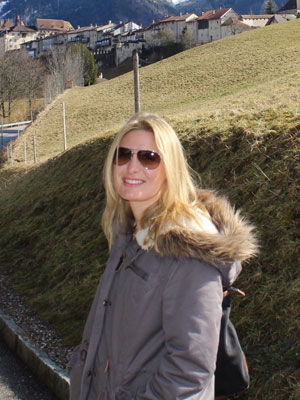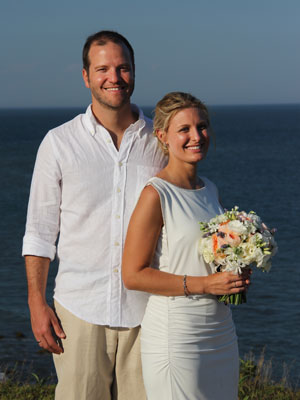Catching Up With … Jessica (Frisina) Bruno '06, '08
You completed both your undergrad and graduate work at Hofstra in education. Did you always know you wanted to be a teacher? What drew you to early education?
I think every child dreams about being a teacher at some point. Whether it’s by playing school or enjoying explaining a topic to a friend or sibling, it becomes developmentally appropriate as part of our daily lives. It’s what children see demonstrated every day by teachers and parents. Hopefully every child has a teacher, parent, coach or friend who they hope to emulate one day.
I knew I wanted to be a teacher since the 4th grade. It was around then that thoughts of being a doctor or actress or dolphin trainer started to fade away and the idea of teaching as a profession became more relevant.
What most drew me most to a career in education was the personal connection it allows you to make with other individuals. Teaching – good teaching – involves a deep connection and understanding for others and their needs. In any kind of education, there needs to be a respectful and respected relationship between the two parties. Every day I learn from my students as much as I hope they learn from me.
What kind of experience did you have working on campus at the Diane-Lindner Goldberg Child Care Institute (CCI) at the Joan and Arnold Saltzman Community Center?
Walking around the Hofstra campus, students see the wooden trolley strollers with six children adorably seated in rows, nibbling on crackers. They are a staple of the Hofstra campus and a welcome sight while studying or taking windy walks to class. When I was in my third year of undergraduate study at Hofstra, I went to visit the CCI to do some observations for a class. I enjoyed the experience of being with the children and teachers so much that I went back the following day to ask if there were any student aide openings.
Working at CCI as an undergraduate was an invaluable experience. It allowed me to put into practice the theories and ideas that I was learning about in class. Additionally, it helped me figure out the kind of teacher I wanted to be and gain experience with different early age groups. After graduation, I was offered a full-time position as an assistant teacher in CCI’s 2-year old classroom. Although I’ve not taught such young children since then, I am constantly drawing upon the experiences I had there. Working there gave me a first-hand look at child development.
People sometimes tend to think of teaching as a “safe option” but you’ve used your degrees when the opportunities arose to teach outside the country. How did these opportunities come about?
Education is constantly changing and evolving, and we have to make sure that our teaching is always relevant and engaging for our students. This is true all over the world, and I’ve had the opportunity to teach in three countries.
My education at Hofstra helped me build the foundation for the type of teacher I want to be. It taught me the relevant theories and practices, but also allowed me the freedom to question those theories and grapple with new ideas. It is because of that freedom that I’ve been successful in schools outside of the United States.
I was lucky to have an opportunity to teach in Nassau, Bahamas, and the school I taught at is structured around a curriculum from the International Baccalaureate Organization (IBO). This particular curriculum [Primary Years Programme or PYP] is based on student-led inquiry while still holding schools, teachers, and students to high expectations outlined through the IBO. After two years in the Bahamas, my husband was transferred to Zurich, Switzerland, where I was ecstatic to be hired at other international schools following the same curriculum. I would highly recommend that educators, especially those who are feeling stifled in their professional development, to take their passion and knowledge “on the road” and look for opportunities outside public, standardized education.
Have you noticed differences abroad in the expectations teachers and parents have for the education students receive?
The expectations within the school system that I am teaching in now are vastly different than those that I experienced in the United States. I have found that the students who have come up through this system tend to understand content more deeply. Students are in charge of their own inquiries and therefore need to dive deeper into various topics rather and not just depend on the information a teacher is relaying.
What are your future plans? What advice would you give to current students planning careers in education?
I plan on staying within the International School System for the remainder of my teaching career. One day, I hope to end up in an international school back in New York – but there’s a lot more ground to cover before then! If I had one piece of information to offer current students who are planning a career in education I would say, it’s totally worth it! The education that I received from Hofstra gave me the skills and knowledge I need to teach anywhere in the world.

Jessica Bruno has been able to apply her Hofstra degrees in education to teaching opportunities in Zurich and the Bahamas



